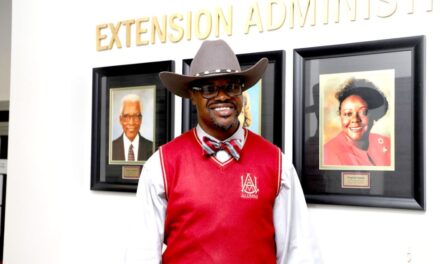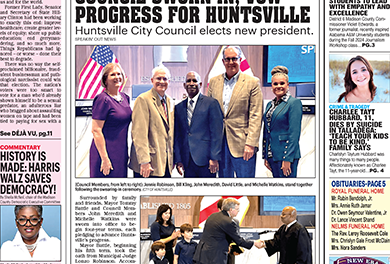By Imani Augustus and Madeline Burke
A federal appeals court in Miami is considering a challenge to a program by Fearless Fund intended to provide grant, mentorship, and training opportunities for Black women looking to grow their businesses. Other lawsuits have challenged entrepreneurial support implemented by the US Small Business Administration and Minority Business Development Agency. These legal attacks all share a common accusation: helping Black women and other underserved business owners is racially discriminatory or exclusionary.
We don’t disagree that other entrepreneurs need help. The way to help them, though, is not by cutting down support for minority-owned businesses. Instead, we need a nationwide effort that helps all those who are disadvantaged to start and scale businesses.

(Photo courtesy of thirdway.org)

Entrepreneurship has always been a key part of the American Dream. Business ownership creates jobs for people in their community and provides the dignity of being able to work for oneself. Black entrepreneurs have 12 times more net worth than their peers who work for an employer. And new businesses and high-growth startups account for seven-in-ten new jobs annually.
And yet, starting a business in this country is exceptionally hard. According to new data from the Federal Reserve, small business revenue and employment growth are still below pre-COVID levels. A majority of small businesses are struggling with staffing, supply chain issues, and growing sales. And half have needed to use personal funds or cash reserves to handle recent financial challenges. No wonder 21 percent of businesses fail in their first year and only 50 percent are still in business after five years.
Barriers to starting and scaling businesses are even higher for women and people of color. It costs at least $250,000 more for a Black or Brown entrepreneur to start the same, exact business as their White peer. As the Alliance for Entrepreneurial Equity found, minority-owned businesses have less revenue, are more likely to be labeled a high credit risk, and are more likely to be shut out of financing. Because of these barriers, men own three times the number of small businesses than women. Only 2 percent of employer businesses are Black-owned and 6.5 percent are Hispanic-owned—far below their population in the United States.
But these entrepreneurs aren’t the only ones struggling. Four-in-ten rural business owners have trouble accessing capital, and over half struggle with access to digital technology. Access to venture capital is especially concentrated in four urban metropolitan areas—all on the coasts. Military spouses face unique burdens resulting from frequent moves and financial stress. People in low-income areas are more than twice as likely to live in a banking desert than their counterparts in higher-income neighborhoods.
Rather than attacking a venture capital fund or government program that’s trying to help disadvantaged entrepreneurs, we need to embrace them. And we also need to build on those efforts through a large-scale nationwide commitment to help all disadvantaged entrepreneurs. To be successful, there needs to be a combination of public and private sector support. That’s where efforts like Fearless Fund come in. The private sector needs to commit to looking beyond established businesses to ensure we’re helping those who are often forgotten. The promises of billions of dollars committed to racial equity after the murder of George Floyd must be upheld. And private philanthropy can’t forget about entrepreneurship among other causes.
A nationwide effort can’t rely on the private sector alone, however—that’s where the government must step up. That starts with capital. Washington can do far more to increase available capital for entrepreneurs, modernize the financial system to ensure capital flows freely in the future, and support regional growth and capital deployment. The federal government can also dramatically expand markets for US small businesses, from access to government contracts to international customers. And there’s a role for the government to play in lowering the barriers to entrepreneurship by making child care more plentiful and affordable, increasing technical assistance, streamlining antiquated licensing, and more.
If Black-owned businesses were proportionate to population, the United States would see more Black-owned businesses, 7 million more jobs, and $733 billion more in sales and revenue. If female-owned businesses had fewer barriers, we could see a real narrowing of the gender wealth gap. And if it was easier to grow a business in rural America, we could see a revitalization of communities throughout the country. To seize these opportunities, we must not strike down efforts to support disadvantaged entrepreneurs. We should support them—and do far more.











